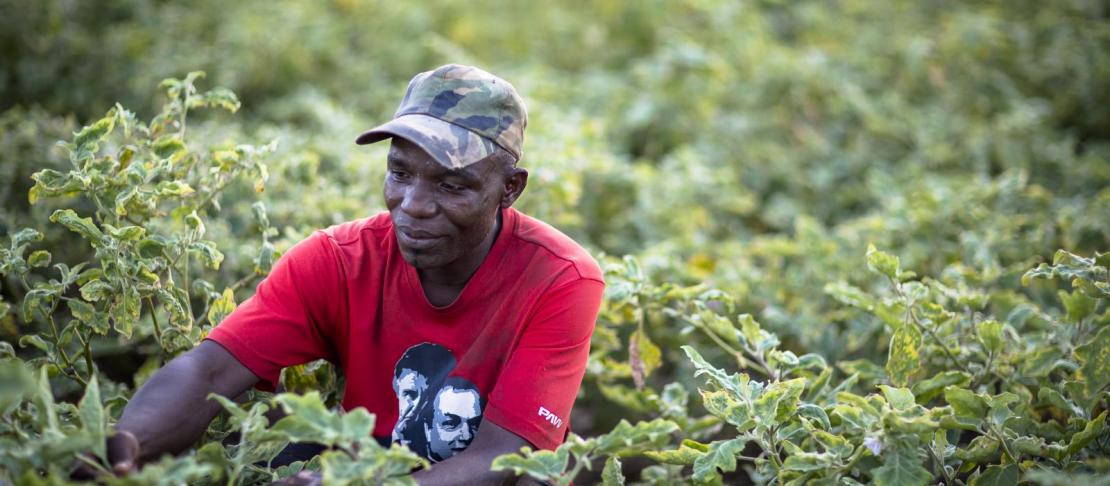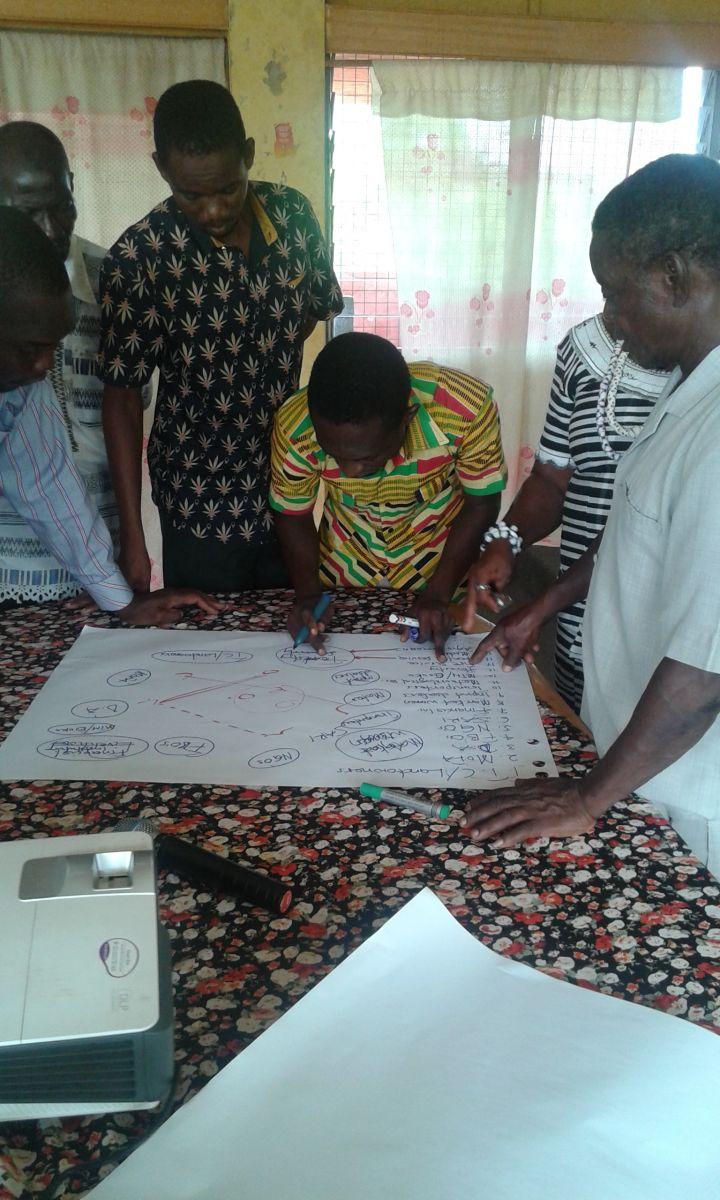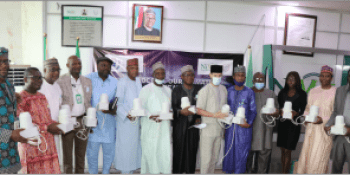Scenarios help guide discussions on what Ghana’s future could look like

Series of Future Scenarios workshops help raise climate awareness and promote interaction between key stakeholders in Ghana.
Discussions with West African partners reveal that ambitious climate research initiatives have only had limited success in the region. This is mainly because projects are carried out without proper coordination or focus on creating synergies between initiatives. These fragmented efforts are limiting the potential of large-scale and long-term impact.
This is why a project led by the International Crops Research Institute for the Semi-Arid Tropics (ICRISAT) and part of CCAFS Flagship on Policies and Institutions has committed itself to help facilitate interaction between key stakeholders in the region.
The project’s objective is to support interaction among stakeholders to generate collaborative solutions to climate-related issues in the agriculture sector. The project is using so-called ‘science-policy platforms’ to get key stakeholders, especially researchers and policy makers, to meet and engage with each other. To date, nine such platforms have been set up in Senegal, Ghana and Mali, three in each country.
Learn more: Bridging the science-policy gap through climate exchange platforms in West Africa
Developing scenarios to outline Ghana’s future
What are Future Scenarios?
Participatory scenarios modelling help stakeholders picture a range of possible futures for their regional climate, economy and society. Scenarios are not predictive forecasts however, but are imaginative “what if” accounts.
The multiple outlined and envisioned future scenarios can help partners acknowledge unknowns and visualize widely different but plausible future worlds and be used to test and revise major climate and agriculture initiatives. Learn more
The platform project has been working with CCAFS Future Scenarios team based at Oxford University to introduce futures thinking to their members by means of scenarios.
Scenarios are different narratives aimed at describing different plausible futures and thereby take into account future uncertainties.
This is particularly relevant when it comes to the nexus of climate change, agriculture and food security. The scenarios activities will help participants better grasp what climate change is and what it might entail for their districts.
The project started with the district-level platforms in Ghana, namely Lawra, Jirapa and Nandom from the Upper West Region. The platform participants joined for a three-day workshop to develop different future climate and socio-economic scenarios for their communities. During this workshop, regional future scenarios were first outlined for the entire West African region and thereafter downscaled for the various districts.
 Participants used these downscaled scenarios to explore different futures’ contexts and which ‘factors of change’ within and outside the districts will come to impact agriculture up to year 2030.
Participants used these downscaled scenarios to explore different futures’ contexts and which ‘factors of change’ within and outside the districts will come to impact agriculture up to year 2030.
The exercise helped identify the many factors that can potentially influence community development, which came down to population growth, erratic rainfall patterns, urbanisation and change in government policies, and to reflect on actions that they can take now, to avoid outlined, potentially catastrophic scenarios.
In addition to the development of the qualitative scenarios, two agricultural economic models were used to quantify the results: IMPACT, developed by the International Food Policy Research Institute (IFPRI), and GLOBIOM, developed by the International Institute For Applied Systems Analysis (IIASA).
The project and platform members will use the scenarios and factors of change to help guide and inform district- and national-level policy-processes and actors in Ghana. Through showcasing the results and plans, stakeholders aim to generate more climate awareness and the need for an enabling policy context that steers districts and the whole nation towards a sustainable and climate-resilient future. After Ghana, similar scenarios processes will be carried out in Mali and Senegal.
Learn more:
Read other Future Scenario blogs
Project Page: Scaling out scenario-guided policy and investment planning
Edmond Totin works as researcher and Project Coordinator at ICRISAT. Lucas Rutting works as Scenarios Coordinator at Oxford University, and leads future scenarios processes in CCAFS East and West Africa. Story edited by Cecilia Schubert, Communication Officer CCAFS Flagship 4 on Policies and Institutions. In-text photo by Alex Addo.
Interested in policies and institutions for climate-resilient food systems? Subscribe to our newsletter.



